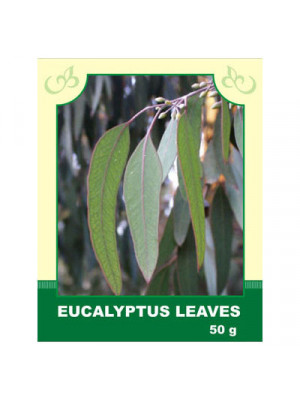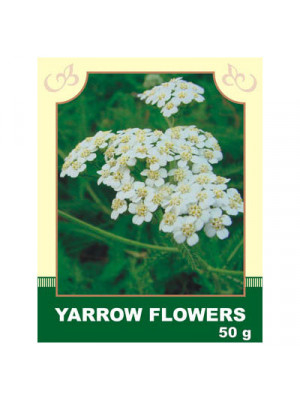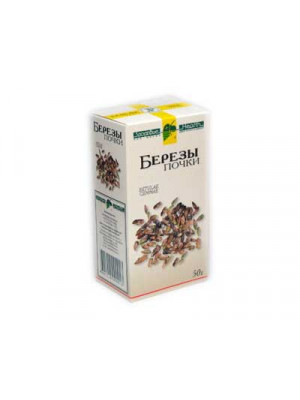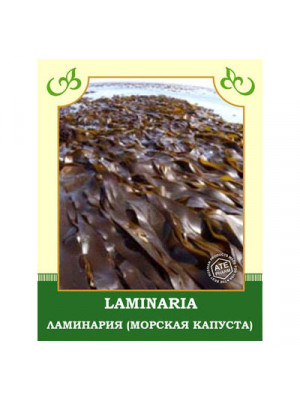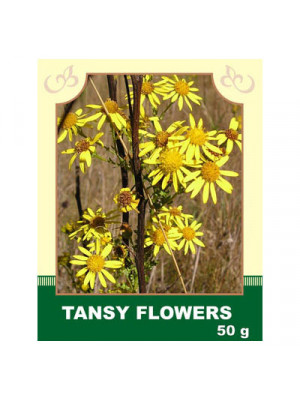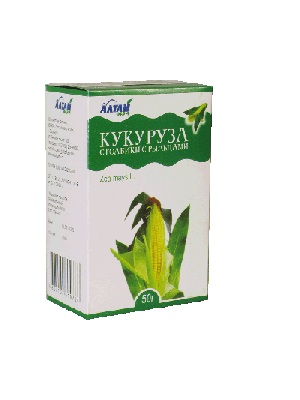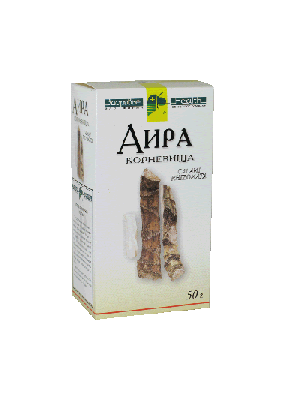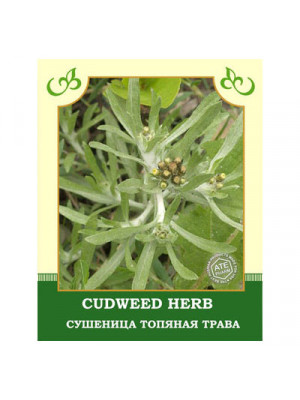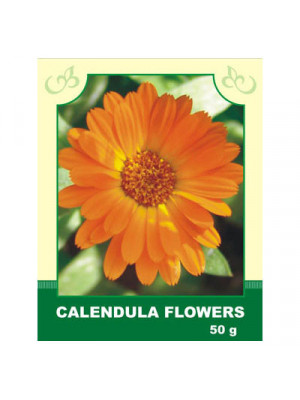Herbs
Internally. Eucalyptus is taken for abdominal pain and gastritis with reduced acidity, bronchial asthma, acute respiratory diseases, pleurisy, bronchitis, and tracheitis. Eucalyptus preparations have disinfectant, anti-inflammatory, analgesic, and antimicrobial properties.
Method of application and dosage: Boil 10 g of dried crushed raw materials for 15 minutes in 1 cup of water, strain, and bring the volume to the original one with boiled water. Take from 1 tablespoon to 1/4 cup 3-4 times a day, starting with a smaller dose and increasing with each intake.
Externally used for rinsing and inhalations in laryngitis, tracheitis, catarrhal and purulent bronchitis, abscesses and gangrene of the lungs, for washing infected boils, wounds, fistulas, ulcers, inflammation of the genital organs, for blepharitis in ophthalmic practice. For external use, prepare based on 2 tablespoons of leaves per 0.5 liters of boiling water.
Contraindications: Individual intolerance.
$6.99Internally: Taken as a hemostatic agent for intestinal and uterine bleeding, dysentery, inflammatory diseases of the bladder, ovaries, gastritis with low acidity, diarrhea, ulcers of the stomach and duodenum, liver diseases, hepatitis, cholecystitis, and angiocholitis, cough, and colds. Also used as a calming remedy for neurosis, hysteria, and hypertension.
Method of application and doses: Decoction - 1 teaspoon in 250 ml of boiling water, simmer for 5-10 minutes over low heat, strain. Drink 1/2 cup 3 times a day. Tincture: 30 g of dry herb is infused in 100 ml of vodka, infused in a dark place for 1 week, strained, and taken in 20-30 drops 3 times a day before meals for dysmenorrhea, angina, and intestinal spasms.
Externally: The decoction of yarrow is very effective when used locally for small cuts, abrasions, scratches, toothache, herpes, focal baldness, and lichen. For bleeding from the eroded cervix, tampons soaked in yarrow infusion or decoction are used. In cases of prolapsed hemorrhoids and bleeding hemorrhoids, compresses soaked in a cold yarrow decoction are applied.
Contraindications: Individual intolerance, during pregnancy, and for those suffering from allergies.
$6.99- Birch Buds contain volatile oils, ascorbic acid, bitters, flavonoids, tannins, sugars. Decoction and infusion of birch buds are considered to have diuretic, antiseptic, anti-inflammatory, cholagogic and wound healing properties. Some medics observed great increase of urination under influencing of this decoction and substantial abatement of edemas even when other heart and the diuretics did not help.$9.99
Internally, bladderwrack is taken for the treatment and prevention of atherosclerosis and mild thyroid diseases. It is also used for constipation, acute and chronic enterocolitis, proctitis, and hemorrhoids. Bladderwrack can completely eliminate sexual dysfunctions such as female inflammation and impotence in men.
Method of consumption and dosage: Take 1 teaspoon of powder 2-3 times a day, washing it down with water.
Contraindications: individual intolerance, nephritis, tendency to bleeding, tuberculosis of the lungs, urticaria, during pregnancy, and in other cases when iodine consumption is not recommended.
$6.99Internally, it is used in the treatment of chronic bronchitis, hypertension, nervous disorders, epilepsy, insomnia, migraines, rheumatism, and radiation sickness. It is particularly noted for its application during menopause, kidney and liver diseases, ovarian diseases, and respiratory infections.
Method of application and dosage: Pour 1 tablespoon of ground herb of clover with 200 ml of boiling water, heat on a water bath for 30 minutes, cool at room temperature for 15 minutes, strain. Drink 1/3 cup 3 times a day before meals. Externally, infusion and decoction of clover, as well as ointment from clover flowers, are used for the treatment of furunculosis, purulent wounds, mastitis, otitis, and rheumatism.
Contraindications: individual intolerance, pregnancy, kidney diseases. It is a toxic plant, and strict dosage should be observed; consult a specialist before use. It is advisable to use it only in herbal blends.
$6.99Internally, it is taken as an antipyretic and sedative for cramps in rheumatism and polyarthritis, headaches, hypochondria, epilepsy; as an antiparasitic remedy for expelling roundworms and pinworms; as a cholagogue for liver and gallbladder diseases, as well as for kidney and bladder inflammations, menstrual cycle disorders, and nervous excitement.
Method of application and dosage: Decoction - 2 tablespoons of finely chopped raw material, pour 0.5 liters of boiling water, simmer on low heat for 10 minutes, let it infuse for half an hour to an hour, and drink 1/4-1/3 cup three times a day 20-30 minutes before meals.
The infusion of tansy is prepared in the same proportion. It is usually taken in 1/4-1/3 cup three times a day. In case of peptic ulcer disease, the dose of infusion and decoction can be increased to 1/2 cup per intake.
Externally, it is used for treating purulent wounds, ulcers, bruises, rheumatism, scabies, and for washing the head in case of pediculosis (lice infestation). Steep 1 tablespoon of flower heads in 400 ml of boiling water for 2 hours.
Contraindications: Individual intolerance, not recommended during pregnancy and for children of a younger age. The plant is potent, strict dosage is required.
$5.50- Description. Corn silks contain vitamin K, ascorbic acid and pantothenic acid, fatty and volatile oils and other substances. The entire corn plant has long been used in Chinese and American Indian cultures for medicinal and nutritional purposes. Research has shown that corn silk may cause the production of bile and improve liver function. Chinese research has shown that corn silk can also lower blood pressure and improve blood-clotting. Because corn silk has such a high concentration of potassium (Vitamin K), it is a powerful diuretic. It can be used for many problems with the urinary tract. It is helpful for kidney stones, cystitis, and problems with urine flow.
Use. Corn silk is used for many types of urinary tract problems. The plant can be used to sooth the lining of the urinary tract. It can help relieve pain and difficulty with urination. Corn silk can help relieve the problem of cystitis. Corn silk is believed to reduce the formation of kidney stones. It can also help relieve symptoms for person who already has stones. In China, corn silk is often used to treat fluid retention and even jaundice. Use in cases of inflammation of the gallbladder, bile duct, and hepatitis with retention of bile secretion.
Attention! Before using any herbal products, make sure that you have full knowledge of how the herb works and any adverse reaction it may cause.$6.99 - Calamus comes from China and India. In his books Hippocrates wrote about extraordinary properties of this plant. Nowadays Calamus root is widely used throughout the world. The plant consists of ascorbic acid, starch, gum, volatile oil, tannins etc. Calamus Root is an aromatic stimulant that has been used for centuries in many cultures mainly for digestive complaints. It is considered to benefit digestion, increase the appetite and ease dyspepsia and stomach cramps. The herb is thought to relieve the discomfort of flatulence, as well as check the growth of the bacteria which gives rise to it. The root is considered a stimulant, carminative, hypotensive, tonic, bitter, and aromatic.$7.99
Internally: Taken for stage II hypertension, angina, atherosclerosis; added to herbal blends for peptic ulcer of the stomach and duodenum, gastritis with increased and decreased acidity, ulcerative colitis, as well as in diabetes and tuberculosis.
Method of application and doses: 2 tablespoons of raw material are poured with 200 ml of boiling water, boiled in a water bath for 15 minutes, infused at room temperature for 45 minutes, strained, squeezing out the remaining raw material. The resulting infusion is brought to the original volume with boiled water and taken in 1/2-1/3 glass 2-3 times a day after meals.
Externally: Applied for the treatment of cancerous diseases, wounds, burns, fistulas, and long non-healing ulcers. Prescribe compresses, lotions, tampons from infusions of Potentilla; for foot baths: 50 g of raw material is poured with 1 liter of boiling water, boiled for 5 minutes, infused until cool, strained, diluted in 10 liters of boiled water to a temperature of 35-37 degrees Celsius. The duration of the foot bath is 30 minutes.
Contraindications: Arterial hypotension, thrombophlebitis, individual intolerance.
$6.99Internally, it is taken for gastritis, enterocolitis, stomach and duodenal ulcers; for inflammatory diseases of the liver and kidneys; in the treatment of heart diseases accompanied by palpitations, edema, and shortness of breath.
Method of application and dosage: 2 tablespoons of raw material are poured with 400 ml of boiling water, infused for 2 hours, strained, squeezing the plant material. The resulting infusion is brought to the original volume with boiled water. Take 1/2 cup 3 times a day.
Externally, in the form of rinses, douching, enemas, and compresses, it is used for diseases of the mucous membrane of the mouth and throat, gingivitis, thrush in children; for conjunctivitis; for abundant whites in women; for the treatment of wounds, burns, and ulcers on the body, in oncology. 20-40 g of raw material is poured with 200 ml of boiling water, heated in a boiling water bath for 15 minutes, infused at room temperature for 45 minutes.
Contraindications: individual intolerance, with low blood pressure.
$5.20


